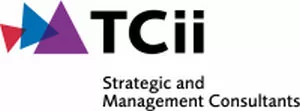"They took that out of context. I didn't really say that!" Or, "That's not what the reporter called about!"
Reporters are people, too. They make mistakes and occasionally get it wrong. No matter how carefully you communicate, there is no guarantee that reporters will get your quotes perfectly right or report everything you want them to.
You can increase the odds that reporters will get your story right and prevent yourself from being misquoted by doing the following:
- Direct the reporter to the appropriate person. When a reporter calls, make sure you are the best person to talk on this subject. If you're not an expert, or if you're unsure of the content, refer the reporter to someone who can give accurate information – hopefully someone in your company. If not, help the reporter find someone else, even if it's a competitor. The reporter will appreciate your efforts, and chances are he or she will call you again.
- Get clear on what the reporter wants to know. Before taking up a lot of time, find out what the call is about and what the reporter wants to know. If you feel comfortable with the content, proceed. If you need to check some facts or collect your thoughts, ask when the deadline is and then call back, if possible.
- Stick to the facts. One of the first rules of communicating with the media is: "The more you say, the more you can stray." Many spokespeople get misquoted because they say too much. Instead of providing reporters with endless background, write a one-page fact sheet that details the basic facts. If possible, provide the fact sheet before the interview. If not, send it afterwards. Either way, the reporter now has a source to check the facts, and you can concentrate on context during the interview. Fact sheets save time, so you don't have to explain the basics to each reporter who calls. In addition, they allow you to emphasise what is important during the call.
- Give the reporter time to take notes. If you're giving a phone interview, do you hear "clickety-clack" noises on the other end of the line? If so, that's your cue to slow down because it means the reporter is interested enough in what you're saying to take notes with his or her keyboard. Therefore, it's important to make sure the reporter has time to capture every word and to repeat what you've just said. The same is true for in-person interviews, where reporters usually scribble notes on a notepad. When you see the reporter writing, slow down and repeat what you've said.
- Use emails appropriately. Some reporters conduct interviews or send questions via email. This is a great way to conduct the interview because it gives you total control of your words. Just be sure to have a co-worker check your response for unintended meanings and phrases that can be taken out of context. If your goal is to build a long-term relationship with a reporter, don't rely on email interviews all the time. Long-term relationships are better accomplished over the phone and in person.
- Ask for a "read-back". Reporters have no obligation to read your quotes back to you, but many of them will. If you don't like the way you said something, they may not change it. But if you misspoke and said something factually wrong or inaccurate, they will. For best results, ask the reporter to read back your quotes during the interview, not afterwards.
- Ask for a preview. If a reporter is calling about a story that has already broken elsewhere, ask if he or she will fax or email the story to you before you react with an on-the-record comment. It doesn't hurt to ask, and you will be better prepared or informed when you call the reporter back for the interview.
- Speak in short sentences. Most newspaper articles are written for quick reading. Long sentences do not translate well in either print or broadcast media, and wordy quotes will get edited down accordingly. If your answers become long-winded and complicated, you may not like how that editing comes out.
- Speak plainly. Stay away from industry or technical jargon because it is open to interpretation by the reporter. To keep it simple, imagine that you are explaining to a relative or neighbour what you do in your field of expertise.
- Make yourself available. Offer your availability for further clarification, fact-checking, or additional information. Encourage reporters to call back or send an email if they are unclear about the context or need further details. Make sure you are available to respond quickly, as many reporters have daily deadlines.
Finally, don't expect the reporter to show you the story in advance of publication. To do so is offensive, and suggests that you are attempting to control what is printed.
The content of this article is intended to provide a general guide to the subject matter. Specialist advice should be sought about your specific circumstances.
